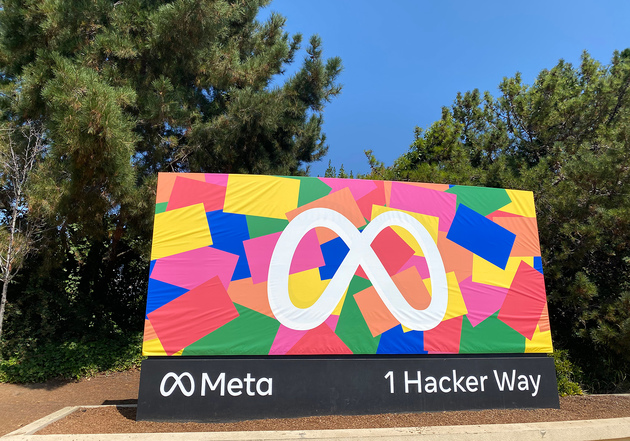
Photo/Zheng Yuhang (NBD)
NO.1 Meta to launch AI detection tagging tool
Meta says that in the coming months, Facebook, Instagram, and Threads will try to detect photos uploaded to the platforms and tag them with an "AI tag." For example, images generated through Meta's own AI "Text-to-Image" function will have a visible watermark in the lower left corner, and the image's metadata will also be watermarked invisibly.
Commentary: This is an important attempt by Meta in the field of AI, and it will help to improve the credibility of the platform's content, but it may also raise privacy concerns.
NO.2 Brain implant successfully controls epilepsy and OCD
With the help of an implantable brain stimulator, a female patient at Oregon Health & Science University successfully controlled her epilepsy and obsessive-compulsive disorder (OCD). The stimulator uses interactive programming of a responsive neurostimulation system, and the related research was published in the journal Neuron.
Commentary: The successful application of this technology will open up new treatment avenues for neuroscience, but further clinical trials are needed to verify its long-term effects.
NO.3 HIV surface has ultra-fast "latch"
Researchers at the Duke Human Vaccine Institute observed that a glycoprotein on the envelope of the human immunodeficiency virus (HIV) can open and close in a millionth of a second, like a latch. If antibodies can be specifically attached to this small structure to prevent it from opening suddenly, it could be the key to preventing infection.
Commentary: This discovery could provide new directions for the development of an HIV vaccine, but many technical challenges still need to be overcome to achieve this goal.
NO.4 "Chip heart" can evaluate drug toxicity
Scientists at Cedars-Sinai Medical Center have created a three-dimensional "chip heart" to assess the safety of chemotherapy and cancer drugs. This "chip heart," made from stem cells, can accurately predict the effects of drugs on human heart cells.
Commentary: This innovative technology can help improve the efficiency and safety of drug development, but its application in large-scale production needs further research.
NO.5 Microsoft: Will train 2 million people in India to master AI
Microsoft CEO Satya Nadella said that Microsoft will help train 2 million people in India to master AI skills. The skills training will focus on training people in second- and third-tier cities and rural areas, and will promote inclusive socio-economic progress.
Commentary: This is part of Microsoft's global effort to promote AI technology, and it will help to improve India's digital literacy, but it is necessary to consider how to ensure the quality and effectiveness of the training.
Disclaimer: The content and data in this article are for reference only and do not constitute investment advice. Please verify before using.


 川公网安备 51019002001991号
川公网安备 51019002001991号





